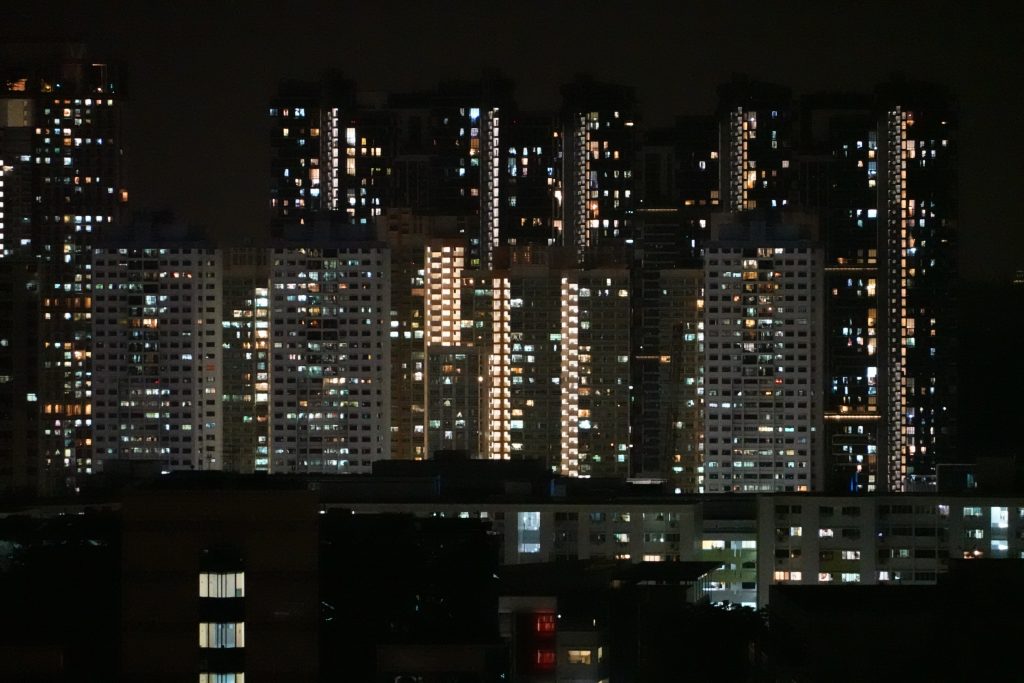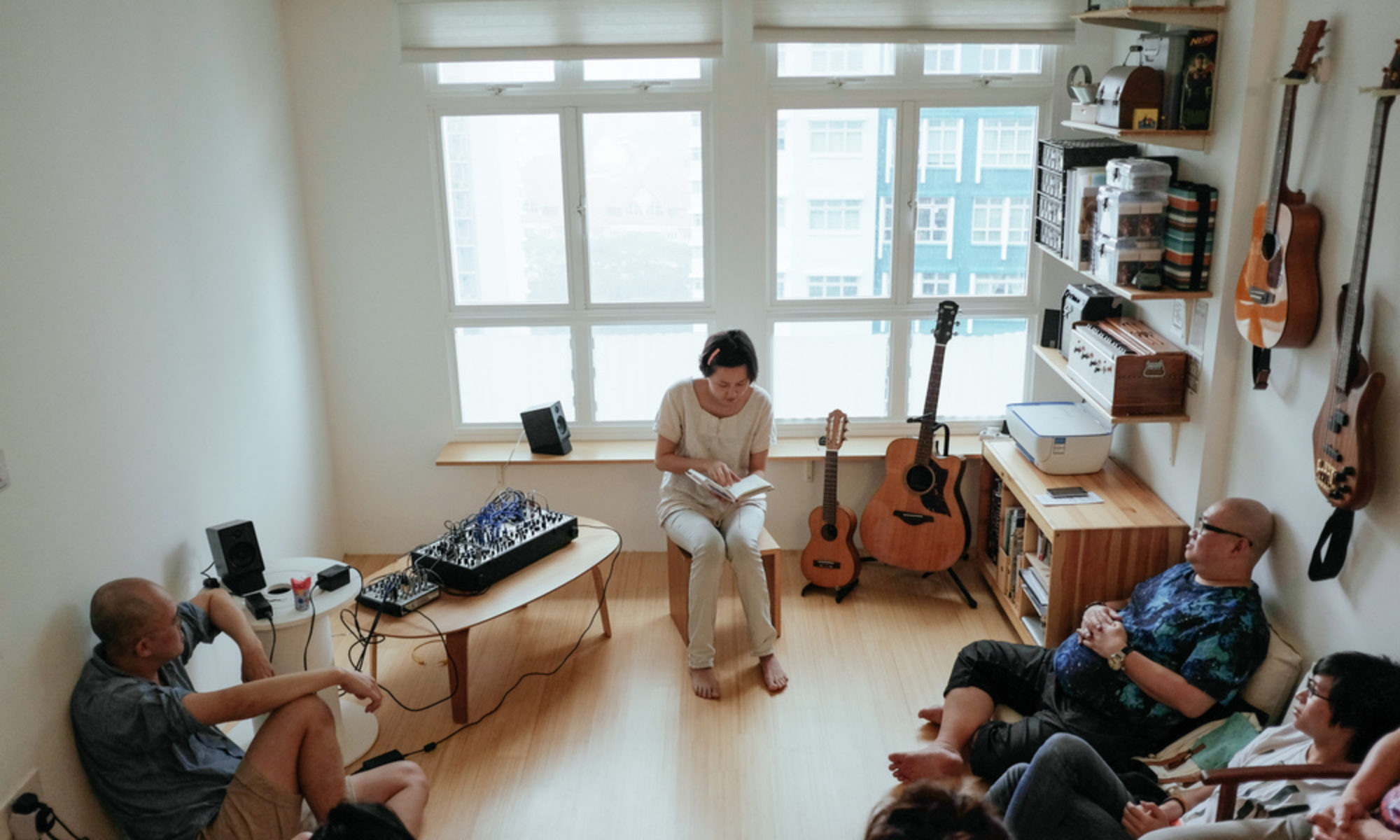Autobiography
Alfian Sa’at (b. 1977)
Like most of us, I can’t remember how
I was separated from my first love.
(Did it die, did I break it, was it stolen
Or did it fly out through the open window?)
I didn’t have radio-tuning parents
Who filled the house with music
Or instilled in me “a love of the cinema”.
I never recalled my mother coming home
From the hairdressers’ with a new hairdo
Or father teaching me fishing, or
Staying up to watch football on TV.
He did once bring a kite home but hung it
On my bedroom wall (he turned it into
A portrait, it wasn’t his fault the wall
Never became more of a sky). Meanwhile
Cousins came for visits wearing braces
And chattering about comics, bicycle scars,
And camping out, ghost stories (don’t tell
That one, tell the one where Daddy used
The torchlight and Mummy screamed and dropped
Her things and laughed like a hyena). We drank
Boiled water in the house, and sometimes
Waking up from a nap I would wander the rooms
To find mother copying cross-stitch designs
From a book or father watching a subtitled
Chinese re-run. So I slept again, dreaming
Of playing toys away from the sunlight
That leaked in between hawk-eyed curtains
Gold-plating afternoon dust to shining pollen.
When I awoke I was twenty, being asked
If I had a happy childhood. Yes, the one
We all have: filled to the brim
With the love of absent things.
(2001)
***
James 4:1-3 (NIV)
What causes fights and quarrels among you? Don’t they come from your desires that battle within you? You desire but do not have, so you kill. You covet but you cannot get what you want, so you quarrel and fight. You do not have because you do not ask God. When you ask, you do not receive, because you ask with wrong motives, that you may spend what you get on your pleasures.
***

***
Alfian Sa’at is a Malay Singaporean writer who has worked prolifically in drama, poetry, and prose. He has been regarded as Singapore’s most preeminent contemporary writer in the English language operating across all three genres. Often described as Singapore’s enfant terrible for his critical positions toward the government, Alfian’s work is most effective in its capacity to evoke melancholy, tenderness, and the fallout coming from feelings of loss.
His poem ‘Autobiography’ is a powerful example of this: it begins with a simple conceit as the speaker remarks, ‘I can’t remember how / I was separated from my first love’, like ‘most of us’. This sense of a collective separation is drawn out steadily, even if this ‘first love’ is left ambiguous. The speaker ruminates on the absence of ‘radio-tuning parents’ and ‘music’, a ‘love of the cinema’, or his mother having ‘a new hairdo’ or his father ‘teaching me fishing’ or watching ‘football on TV’. These images all point to conspicuous markers of class in Singapore, whether in the form of cultural capital or material goods. The closest the speaker comes to this is a kite his father hangs on ‘My bedroom wall’, turned into ‘A portrait’, hanging listlessly for the speaker’s gaze rather than actually being flown in the sky. A hobby, too, is something that is absent from the speaker’s upbringing.
The stanza that follows folds from depictions of material absence to material presence. A contrast is established between the speaker’s cousins, ‘chattering about comics, bicycle scars, / And camping out’, and the speaker, drinking ‘Boiled water in the house’, finding his mother ‘copying cross-stitch designs’, or his father ‘watching a subtitled / Chinese re-run’. All this speaks into the sense of a middle-class ordinariness, marked by reminders of thrift and frugality through the reception of publicly-available or second-hand goods. The speaker ‘[dreams] / Of playing toys away from the sunlight’, itself depicted in lavish terms, ‘Gold-plating afternoon dust to shining pollen’, a sudden gloss of beauty that adorns mundanity. And as the poem comes to its conclusion, and the speaker reflects at twenty if he ‘had a happy childhood’, the poem’s main conceit is laid out clearly: his was a childhood we all have, ‘filled to the brim / With the love of absent things.’
Alfian’s poem is powerful in its depiction of the sly mechanisms of envy: how capitalism and materialism steadily cultivate a sense of insecurity for the absence of material and cultural goods. It is something recognisable to many of us, having grown up in a culture saturated with aspirationalism, the invariable reflection of a country obsessed with economic development and survival. In some ways, one wonders if Alfian’s ‘Autobiography’ can be said to be the autobiography of many growing up in Singapore in the 1990s and 2000s.
In coming to terms with some of these powerful cultural forces, I was reminded of James 4, in which James writes: ‘You covet but you cannot get what you want, so you quarrel and fight. You do not have because you do not ask God.’ The act of guarding our hearts serves as a way of warding off all manner of temptation, for the cultivation of want and desire obscures our ability to recognise that which we have and that which is desired by the Lord. The grip of aspiration and mobility is the promise of meritocracy; its flip side is a feeling of entitlement to certain cultural and material markers, the cultivation of which draws us away from a contentment in Christ.
When we are confronted by our desires for that which we do not have, the ‘love of absent things’, what helps us return to the contentment we have in what God provides?
***
© 2001 Alfian Sa’at

